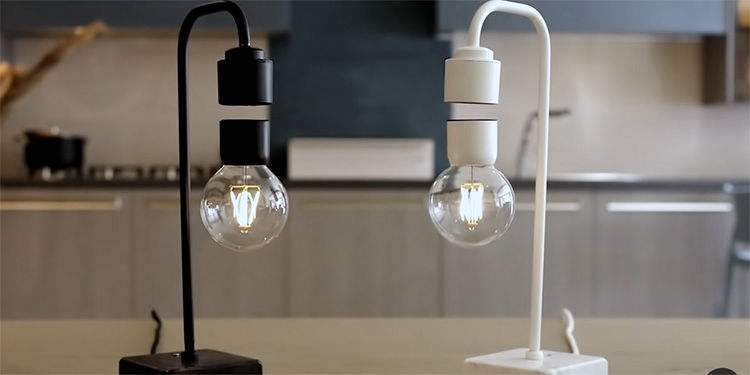1. The Biodegradable Battery
Environmental sustainability is a growing concern, and the tech world is responding with eco-friendly solutions. One of the most promising inventions in this space is the biodegradable battery. Developed by a team of researchers at the University of Illinois, these batteries are made from renewable and non-toxic materials, such as cellulose nanofibrils and zinc. Unlike traditional batteries, which can take hundreds of years to decompose and often leak harmful chemicals into the environment, biodegradable batteries break down in a matter of months. This innovation could revolutionize everything from medical implants to disposable electronics, reducing electronic waste significantly.
2. AI-Powered Mental Health Therapists
The mental health crisis has been exacerbated by a global shortage of qualified therapists. Enter AI-powered mental health therapists. Companies like Woebot Health and Wysa have developed sophisticated AI chatbots that use cognitive-behavioral techniques to provide emotional support and mental health care. These AI therapists can help users manage stress, anxiety, and depression through interactive conversations and evidence-based strategies. While not a replacement for human therapists, they offer an accessible and scalable solution for those in need of immediate support.
3. Smart Contact Lenses
Imagine having all the information you need displayed right in front of your eyes without reaching for your smartphone. Smart contact lenses are making this a reality. Companies like Mojo Vision are at the forefront of this innovation, developing lenses that incorporate micro-LED displays, wireless power, and eye-tracking technology. These lenses can project augmented reality (AR) information directly onto the wearer’s field of vision, providing real-time data, navigation, and more. Whether for medical purposes, like monitoring glucose levels in diabetics, or for everyday use, smart contact lenses are set to transform how we interact with the world.
4. Vertical Farming Robots
As the global population continues to grow, so does the demand for food. Vertical farming offers a sustainable solution by allowing crops to be grown in urban environments using stacked layers. However, managing these farms can be labor-intensive. Enter vertical farming robots. These autonomous robots, developed by companies like Iron Ox and Bowery Farming, can plant, nurture, and harvest crops with minimal human intervention. They use advanced AI and robotics to optimize plant growth, reduce waste, and increase yield. This technology not only makes urban farming more efficient but also helps ensure a steady food supply for cities.
5. Wireless Electricity Transmission
Wireless charging is already a reality for some of our devices, but imagine a world where you never have to plug anything in again. Researchers are working on technology that can transmit electricity over the air, eliminating the need for cables and outlets. Companies like Ossia and WiTricity are developing systems that use electromagnetic fields to safely and efficiently transfer power to devices up to several meters away. This could revolutionize how we power our homes, offices, and even electric vehicles, making energy access more convenient and reducing the clutter of cables.
6. 3D-Printed Organs
The field of regenerative medicine is taking a giant leap forward with the advent of 3D-printed organs. Scientists are now able to print complex tissues and organs using a patient’s own cells, which could one day eliminate the need for organ donors and reduce the risk of transplant rejection. Companies like Organovo and researchers at institutions like Wake Forest Institute for Regenerative Medicine are leading the way in this transformative technology. While fully functional 3D-printed organs for transplant are still in the research phase, the progress made so far is incredibly promising and could redefine the future of medicine.
7. Quantum Computing
Quantum computing is no longer just a theoretical concept; it’s becoming a practical tool for solving some of the world’s most complex problems. Unlike traditional computers, which use bits to process information in a binary format (0s and 1s), quantum computers use qubits, which can represent and process multiple states simultaneously. This allows them to perform calculations at unprecedented speeds. Companies like IBM, Google, and startups like Rigetti Computing are developing quantum computers that could revolutionize fields ranging from cryptography to drug discovery, and climate modeling to financial optimization.
8. Lab-Grown Meat: A More Sustainable Protein SourceThe environmental impact of traditional meat production is significant, with issues ranging from greenhouse gas emissions to land and water use. Lab-grown meat offers a sustainable alternative by cultivating animal cells in controlled environments without the need to raise and slaughter livestock. Companies like Upside Foods and Mosa Meat are pioneering this technology, which could reduce the ethical and ecological issues of meat consumption while providing the same nutritional value and taste.
9. Self-Healing MaterialsImagine a smartphone screen that repairs itself after cracking or a car paint that heals from scratches. Self-healing materials are no longer science fiction. These innovative materials, made with polymers or embedded microcapsules that release healing agents, can automatically repair damage without external intervention. Researchers and companies are exploring their application in electronics, aerospace, automotive, and infrastructure—offering increased durability and reduced maintenance costs.
10. Smart Waste Management SystemsAs cities grow, waste management becomes a bigger challenge. Smart waste management systems, driven by sensors and data analytics, are helping municipalities optimize collection routes, reduce fuel usage, and prevent overflow. Companies like Enevo and Ecube Labs are leading this transformation by integrating IoT technology into waste bins and recycling centers. These systems can signal when they need to be emptied, improving efficiency and contributing to cleaner urban environments.
Embracing the Future of InnovationThe pace of innovation is breathtaking, and the inventions emerging today will shape the world of tomorrow. From environmental sustainability to healthcare, from smart technology to food production, these new inventions promise to make our lives better, more efficient, and more connected. As we look forward to the future, it’s clear that the best is yet to come.Stay tuned, stay curious, and embrace the wonders of modern innovation!

